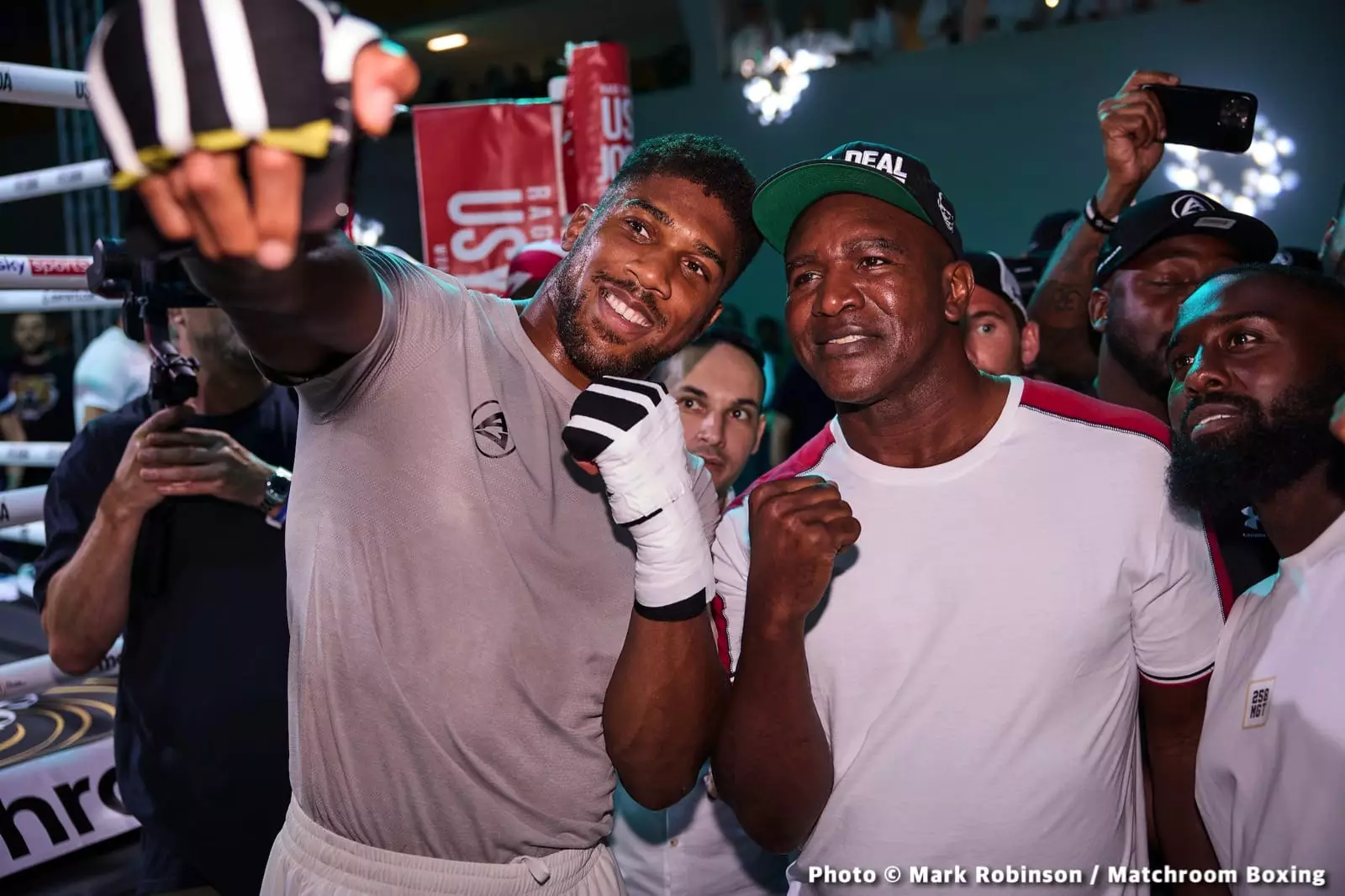At the recent Ring Magazine Awards ceremony held in London, boxing legend Evander Holyfield engaged in a thought-provoking discussion with Radio Rahim of Seconds Out. The spotlight turned to Holyfield’s status in the heavyweight boxing hierarchy, particularly his claim as the only four-time heavyweight champion. While his achievements in the ring are notable, the conversation raised significant questions about the criteria we use to define greatness in the sport. This discourse is essential in understanding how history remembers iconic fighters.
Holyfield’s assertion of being the “only four-time heavyweight champion” offers a glimpse into his unparalleled career. Spanning multiple decades, he captured the heavyweight title on four distinct occasions: the first being in the early ‘90s when he became the undisputed champion, and later securing titles from various sanctioning bodies such as the WBA and IBF. This impressive feat, however, has not seemed to translate into the widespread acclaim that Holyfield feels he deserves. His frustration is palpable as he pointed out the ongoing reverence for Muhammad Ali, arguing that his record-breaking achievement has been overshadowed.
Despite these claims, the weight of an athlete’s legacy is nuanced. Holyfield’s accomplishments certainly merit respect, but the discussion of who deserves the title of “the greatest” extends beyond mere statistics. Ali’s historical significance and his impact on boxing, combined with his character and the challenges he faced, place him in a different strata of greatness.
Evaluating a Fighter’s Legacy
When assessing Holyfield’s status as one of boxing’s greats, it is critical to analyze not only the number of titles won but also the caliber of opponents faced. Holyfield battled many formidable foes, including the likes of George Foreman, Riddick Bowe, and Mike Tyson. These encounters were monumental in defining his legacy. However, the question remains: does winning various titles against a broader pool of champions compare to Ali’s singular reign in an era where only one recognized heavyweight champion existed?
Ali’s impressive list of opponents boasts names like Sonny Liston, Joe Frazier, and George Foreman, creating a historic narrative that resonates much deeper than statistics alone. This raises a pivotal point regarding the criteria for greatness: Is it simply about numerical achievements, or should we also conflate it with the historical context and significance of victories?
Understanding Holyfield’s accomplishments requires a grasp of the context in which he fought. The division witnessed the emergence of multiple champions, leading to a more diluted pool of titles and recognition. In contrast, during Ali’s prime, there was a clearer narrative surrounding the heavyweight title, often leading to one reigning champion who fans all rallied around. The shifting landscape of boxing undoubtedly influences how we perceive the achievements of fighters across different eras.
Additionally, this era of boxing saw the emergence of various alphabet titles. While Holyfield’s title runs are commendable, the quality and recognition of those titles often vary. His significant victories—such as his win against John Ruiz—raise questions about how much weight we give to bouts that may not carry the same historic significance as those fought by earlier champions. It stands to reason that the perception of “who you beat” matters as much as “how many you beat.”
While Evander Holyfield champions his place in boxing history by virtue of being a four-time heavyweight champion, the conversation about greatness is far more complex. His record and contributions to the sport are undeniable, but many still hold Ali as the pinnacle of heavyweight boxing. As the sport evolves and more records are broken, it’s imperative for fans, analysts, and athletes alike to approach discussions of greatness with a critical eye—recognizing not only the numbers but also the narrative and legacy that surrounds them. Holyfield’s passion for recognition is commendable, and his legacy as a monumental figure in boxing history will endure, but whether he can definitively claim the title of “the greatest” remains an enduring debate within this cherished sport.

